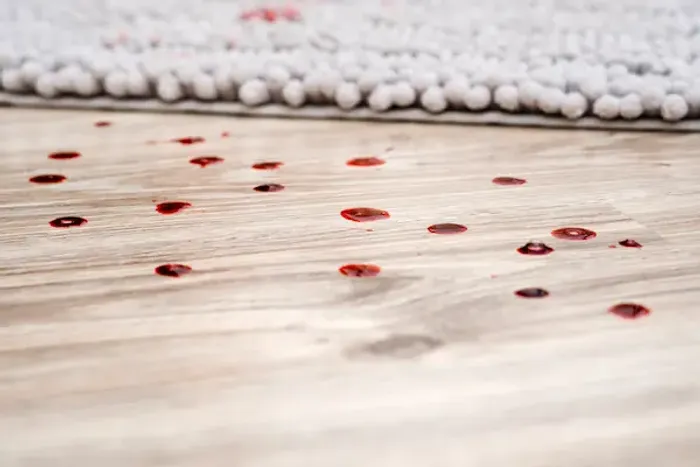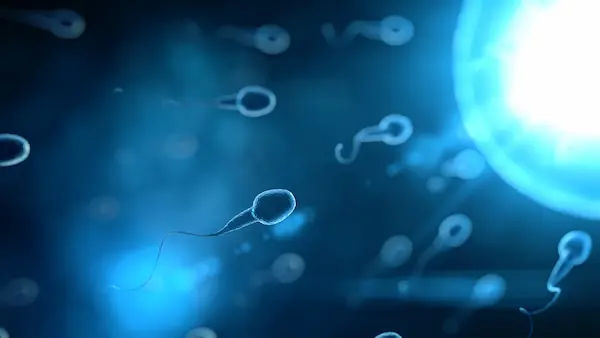Hysterectomy And Bleeding After Intercourse
Bleeding after intercourse following a hysterectomy can be alarming. Understand the possible causes, from vaginal dryness to surgical changes, and learn when to seek medical attention for post-hysterectomy bleeding.

Written by Dr. Md Yusuf Shareef
Reviewed by Dr. J T Hema Pratima MBBS, Fellowship in Diabetes Mellitus
Last updated on 13th Jan, 2026

Introduction
If you’ve undergone a hysterectomy (surgical removal of the uterus) and are experiencing bleeding after intercourse, it can be concerning. This article will help you understand why this happens, when to seek medical advice, and how to manage it effectively.
What Is a Hysterectomy?
A hysterectomy is a surgical procedure to remove a woman’s uterus. Depending on the reason for surgery, the doctor may also remove the cervix, ovaries, or fallopian tubes. There are different types of hysterectomies:
Total hysterectomy: Removal of the uterus and cervix.
Partial (supracervical) hysterectomy: Only the upper part of the uterus is removed, leaving the cervix.
Radical hysterectomy: Removal of the uterus, cervix, part of the vagina, and surrounding tissues (usually done for cancer).
Why Does Bleeding After Intercourse Happen Post-Hysterectomy?
Bleeding after intercourse (postcoital bleeding) following a hysterectomy can occur for several reasons:
1. Vaginal Dryness (Atrophic Vaginitis)
After a hysterectomy, especially if the ovaries are removed, estrogen levels drop, leading to vaginal dryness and thinning of vaginal tissues. This makes the vaginal walls more fragile, increasing the risk of small tears and bleeding during intercourse.
2. Granulation Tissue
Sometimes, after surgery, healing tissue (granulation tissue) forms at the vaginal cuff (the stitched area where the cervix was removed). This tissue is delicate and may bleed easily during or after sex.
3. Infection or Inflammation
An infection in the vaginal area or at the surgical site can cause irritation and bleeding. Symptoms may include unusual discharge, foul odour, or pain.
4. Residual Cervical Tissue (If Partial Hysterectomy Was Done)
If you had a partial hysterectomy (cervix left intact), you may still experience light bleeding from cervical tissue, especially if there are cervical polyps or infections.
5. Rare but Serious Causes
In some cases, bleeding may indicate:
Vaginal cuff dehiscence (a rare but serious condition where the surgical incision opens).
Recurrence of an underlying condition (such as endometriosis or cancer).
To Know More Consult Top Gynaecologists
When Should You See a Doctor?
While occasional light spotting may not be alarming, consult your doctor if you experience:
Heavy bleeding (soaking a pad).
Bleeding accompanied by severe pain, fever, or foul-smelling discharge.
Persistent bleeding after multiple instances of intercourse.
Bleeding that occurs long after surgery (beyond the initial healing period).
How to Manage and Prevent Bleeding After Intercourse?
Here are some effective ways to manage and prevent bleeding after intercourse, helping you stay comfortable, protect your vaginal health, and know when it’s time to consult a healthcare provider:
1. Use Lubrication
Since vaginal dryness is a common cause, using a water-based lubricant during intercourse can reduce friction and prevent tears.
2. Consider Vaginal Estrogen Therapy
If dryness is severe, your doctor may recommend vaginal estrogen creams, tablets, or rings to restore moisture and elasticity.
3. Allow Proper Healing Time
Avoid intercourse until your doctor confirms complete healing (usually 6-8 weeks post-surgery).
4. Stay Hydrated and Maintain Vaginal Health
Drink plenty of water and consider vaginal moisturisers to keep tissues healthy.
5. Gentle Hygiene Practices
Avoid harsh soaps or douching, which can irritate sensitive tissues.
When to Seek Medical Help?
If bleeding persists or is accompanied by pain, fever, or unusual discharge, consult a gynaecologist immediately. They may perform:
A pelvic exam to check for granulation tissue or infections.
An ultrasound to assess healing.
A biopsy if abnormal tissue is suspected.
Conclusion
Bleeding after intercourse post-hysterectomy can happen due to various reasons, most of which are treatable. While mild spotting may not be serious, persistent or heavy bleeding warrants medical attention. Simple measures like lubrication, estrogen therapy, and proper healing time can help prevent discomfort.
If you're concerned about post-hysterectomy bleeding, consult a specialist on Apollo 24|7 for personalised advice and care. Early intervention ensures better recovery and peace of mind.
Consult Top Gynaecologists
To Know More Consult Top Gynaecologists

Dr. Abhishek Daga
Obstetrician and Gynaecologist
20 Years • MBBS, MS (Obstetrics & Gynaecology)
Kolkata
Gynae Care Fertility Centre, Kolkata
(150+ Patients)

Dr. Srinka Mukherjee
Obstetrician and Gynaecologist
7 Years • MBBS, MS Obstetrics & Gynaecology
Kolkata
VDC Clinic, Kolkata

Dr. Korimilli Nisha
Obstetrician and Gynaecologist
10 Years • MBBS, MS (Obstetrics and Gynaecology)
Bansdroni
Siddhita Healthcare., Bansdroni

Dr. Biplab Mukhopadhay
Obstetrician and Gynaecologist
14 Years • MBBS, DNB - Obstetrics & Gynecology, MNAMS, FMAS, Diploma In Minimal Access Surgery
New Delhi
THE CLINICS, New Delhi

Dr. Smita Ghatak
Obstetrician and Gynaecologist
10 Years • MBBS, DGO, DNB Obstetrics & Gynaecology
New Town
Prime Diagnostic and Polyclinic, New Town
Consult Top Gynaecologists

Dr. Abhishek Daga
Obstetrician and Gynaecologist
20 Years • MBBS, MS (Obstetrics & Gynaecology)
Kolkata
Gynae Care Fertility Centre, Kolkata
(150+ Patients)

Dr. Srinka Mukherjee
Obstetrician and Gynaecologist
7 Years • MBBS, MS Obstetrics & Gynaecology
Kolkata
VDC Clinic, Kolkata

Dr. Korimilli Nisha
Obstetrician and Gynaecologist
10 Years • MBBS, MS (Obstetrics and Gynaecology)
Bansdroni
Siddhita Healthcare., Bansdroni

Dr. Biplab Mukhopadhay
Obstetrician and Gynaecologist
14 Years • MBBS, DNB - Obstetrics & Gynecology, MNAMS, FMAS, Diploma In Minimal Access Surgery
New Delhi
THE CLINICS, New Delhi

Dr. Smita Ghatak
Obstetrician and Gynaecologist
10 Years • MBBS, DGO, DNB Obstetrics & Gynaecology
New Town
Prime Diagnostic and Polyclinic, New Town




